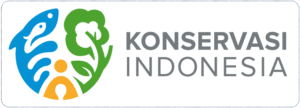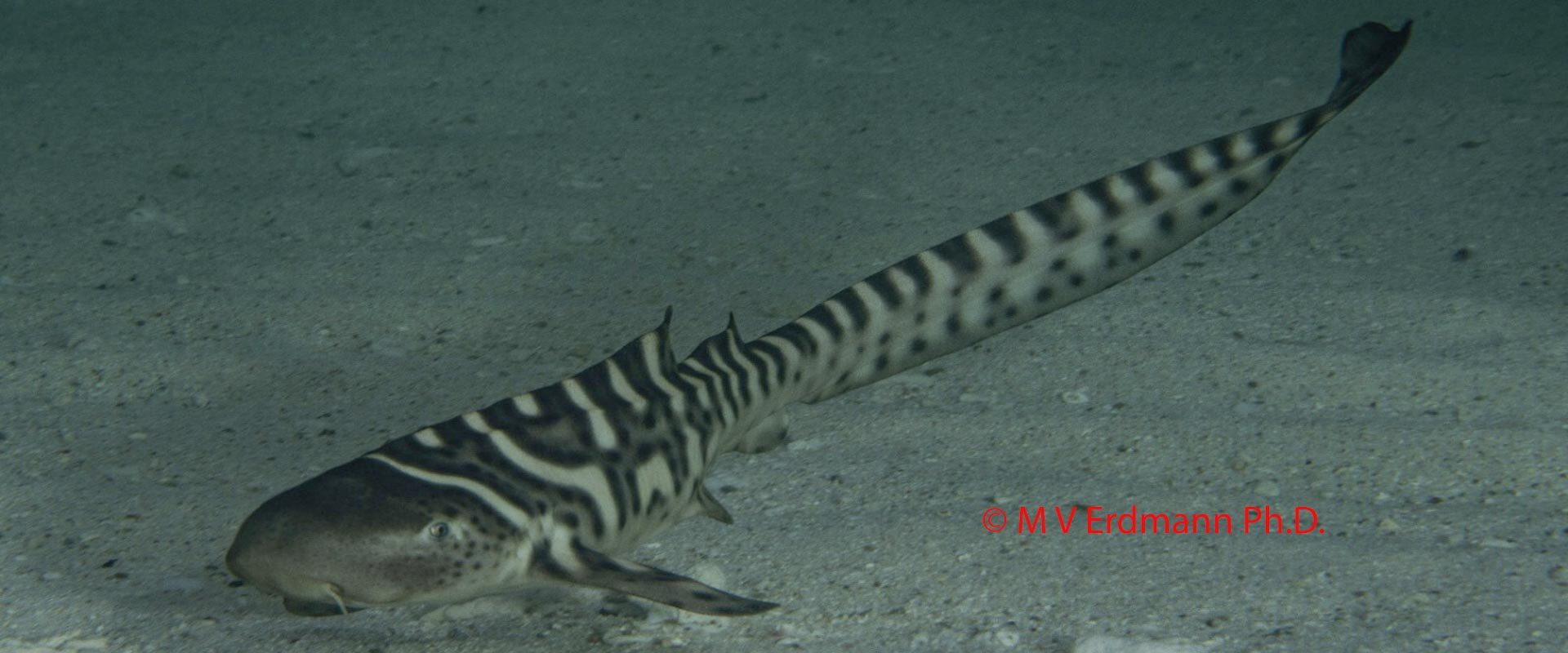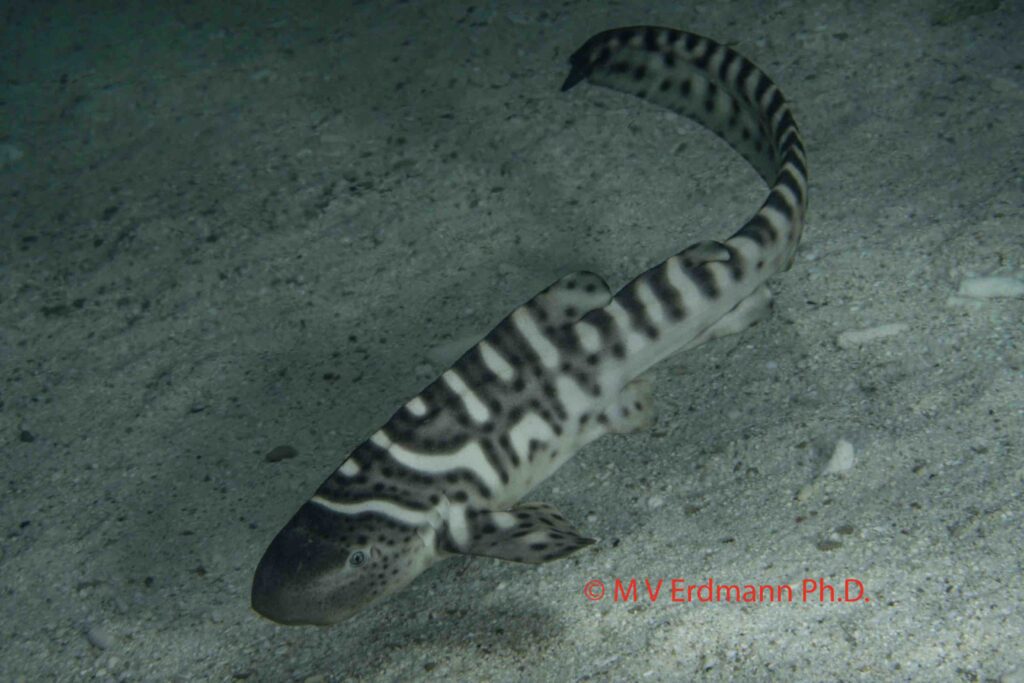Uncaging Zebras of the Reef by *Made Abiyoga Udaya
Laid overseas in a public aquarium, zebra shark (Stegostoma tigrinum) egg cases, which survived trans-Pacific shipment, have finally hatched in specialised facilities in Raja Ampat. Since the late 2022, trained local aquarists have monitored and cared for the zebra shark pups in preparation for a monumental moment – the first release of captive-bred zebra sharks in the wild!
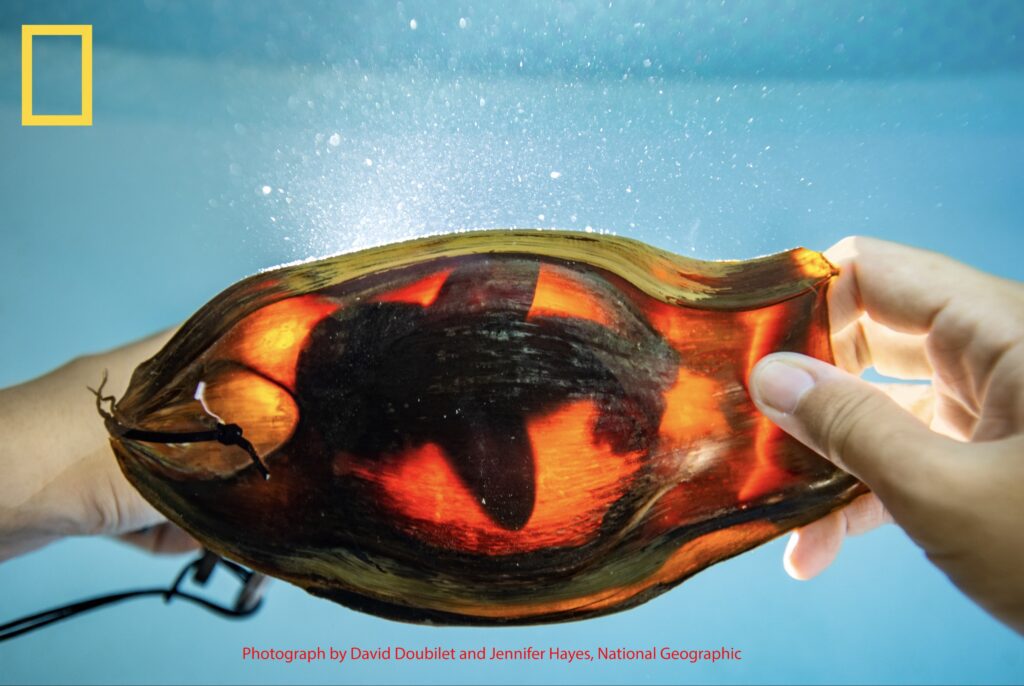
Zebra Shark egg case showing developing embryo
Photograph by David Doubilet and Jennifer Hayes, National Geographic
ReShark, a multi-national initiative to repopulate the endangered zebra sharks in its historic ranges, has driven various entities to collaborate upon the world’s first shark repopulation program: the StAR Project (Stegostoma tigrinumAugmentation and Recovery). The StAR Project’s principle goal is to re-establish a resilient population of zebra sharks in Raja Ampat. Initially conceived in the midst of the pandemic, the program was developed remotely by the global StAR team who were determined to circumvent every challenge to revive the numbers of these once-thriving, charismatic sharks. Projections developed by the IUCN Conservation Planning Specialist Group suggest that StAR has the capacity to mitigate existing risks of extinction within 20 years of launch.
In January 2023, after three years of planning and anticipation, the StAR team, local and national government representatives, and other project partners gathered to witness the release of the first two zebra sharks, Kathlyn and Charlie. The sharks were finally here, in a familiar haven protected from the dangers that initially wiped them out. The chants of the Kawe people, the rightful owners of the lagoon, announced the blessing ceremony. Their strong cultural tradition respects the land and forests as their mother and the ocean as their father, and the Kawe people believe these natural elements will provide for their people through generations. The Kawe paid tribute with offerings of rice, and acknowledged the nature that sustains us all, thus honouring the reintroduction of these baby sharks into their natural home and protecting them throughout their life journey.
Emotions rose and anticipation grew as Prof. Charlie Heatubun (Head of the Regional Research and Innovation Agency – West Papua Province), Syafri Tuharea (Head of the Raja Ampat Regional MPA Management Authority), Ferdinand Bata (Coordinator for the National Marine Conservation Area Agency – Raja Ampat region), Iqbal Herwata (Elasmobranch and Charismatic Species Conservation Strategy Manager – Konservasi Indonesia), and Erin Meyer (Chair of the StAR Project Steering Committee) all assisted in transferring the first shark from its tub by using a net and handing it over to Nesha Ichida (Program Manager for StAR Project Indonesia) who stood in the water ready to receive it.
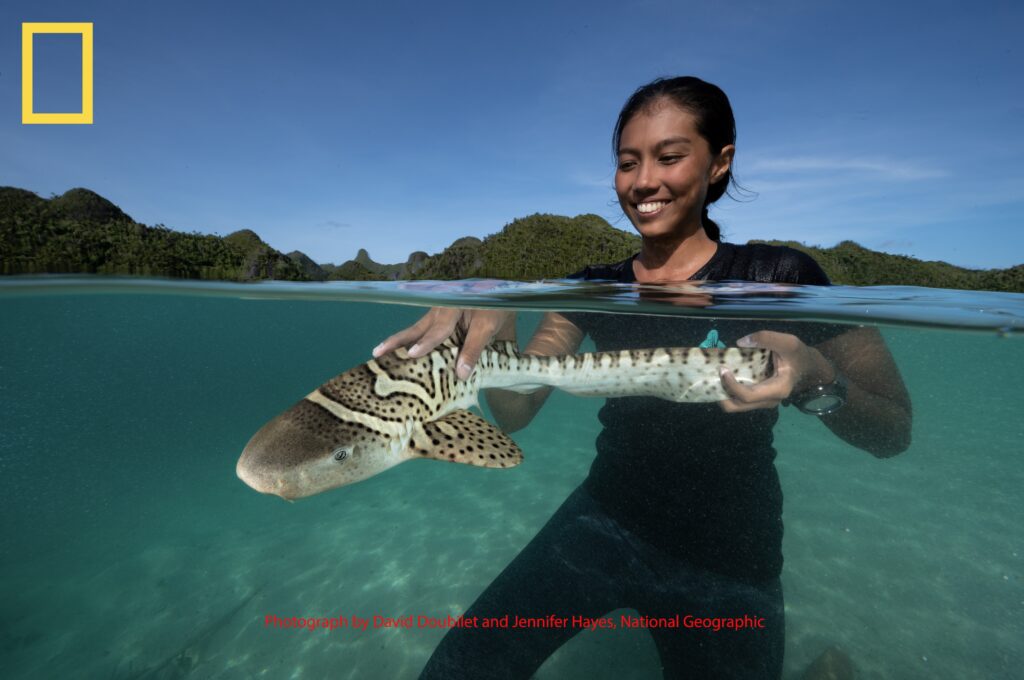
Scientist Nesha Ichida releases the second zebra shark of the day, a young female named Kathlyn, in Indonesia’s Wayag Islands. Ichida is part of a new group, ReShark, led by 44 aquariums from around the world, that aims to rebuild endangered shark populations by reintroducing sharks raised in captivity to their native waters. (Ichida had released Charlie, Kathlyn’s older sibling, and the very first shark set free through this program, 20 minutes earlier.)
Photograph by David Doubilet and Jennifer Hayes, National Geographic
After a brief moment, relief and celebration blanketed the lagoon; the first flick of the tail in open waters proclaimed the rewilding of the sharks – the uncaging of the zebras. This release is the first of many expected to take place over the next decade, and every lesson learned will serve as a basis for the continued planning, adaptation, and implementation of this project.
As a world’s first program, questions of uncertainty fill the minds of all the team that have persevered for this very moment – will they reach maturity? Will their hunting skills suffice? Can they escape predators? Nature finds its course. Despite the human-emotional aspect surrounding the release, the greater goal in conservation prioritizes the protection and survival of a species. The combination of Raja Ampat’s network of well-enforced Marine Protected Areas and the breeding successes of captive zebra sharks in public aquaria, has provided the unparalleled opportunity to conduct this rewilding program. Release day was truly a massive milestone for marine conservation worldwide, and a source of great pride for Indonesia as the world’s first shark rewilding location. ReShark has provided and will continue to provide Indonesian youth with opportunities to work on the frontlines of conservation from building government relations, to scientific monitoring to shark husbandry. The continuation of this project will empower more Indonesian youth to take ownership of their ocean and to develop new methods to protect it.
For marine scientists worldwide, the StAR Project embodies high expectations for rewilding many species on the cusp of extinction. Yet, it’s the program’s often-overlooked wins that signify greater success. The release of these sharks represents almost three full years of fieldwork and countless hours of communicating, collaborating, debating, and developing solutions on a global scale. In the essence of conservation, high-ranking government officials, immense public aquariums, devoted academics, and young local conservationists crossed cultural and political boundaries in order to collaborate and implement this initial release.
I would like to acknowledge the dedication, work ethic, and pure passion of Dr. Mark Erdmann, Dr. Erin Meyer, and Nesha Ichida, whose roles were pivotal in realising this project. Their work will continue to inspire and motivate Indonesian conservationists to advocate for their ocean and innovate change to conserve it. Major kudos go out to the aquarists: Dolly, Mary Rose, Julia, Shannon, and Kyra, who have enthusiastically cared for, and will care for, all the sharks at Raja Ampat’s hatcheries. This project would not be possible without them.
*Made Abiyoga Udaya, is 22 years old, from Bali, Indonesia. He is the Research and Conservation Officer from Thrive Conservation, currently based in Bali. His formal educational background is Marine Biology, though he went straight into conservation after graduating. He joined Thrive in October 2021, after reaching out to them via email and being adopted as an intern! We are so fortunate to have “Abi” join the team. He will be reporting on StAR and ReShark as the project progresses.
About the StAR Project
The StAR Project, led by the West Papua Provincial Government, aims to recover zebra shark populations that are important for healthy marine ecosystems. This project involves multiple partners’ collaboration at the global and national levels to ensure zebra shark species are recovered and protected for the long-term benefit of the Indonesian people. Experts conceived that leveraging the proven breeding success and husbandry expertise of accredited aquariums could be critical in the recovery of this species. Through genetic testing, adult sharks from the Eastern Indonesian-Oceania subpopulation have been identified. These broodstock are being purpose-bred for the StAR project.
About ReShark
ReShark is an international collective of over 75 conservation organizations, aquariums, government agencies and more, dedicated to recovering threatened sharks and rays around the world by re-establishing healthy, genetically diverse, and self-sustaining populations. Restoring sharks to their native ranges will balance ecosystems, as these important predators maintain the food web and serve as indicators for broader ocean health. For more information about this conservation journey, please visit www.reshark.org or follow ReShark on Facebook, Instagram and Twitter.
Acknowledgements
The world first release of endangered zebra sharks into Raja Ampat waters in early 2023 was the culmination of over three years’ of hard work by a wide variety of partners across the globe, all of whom share in the credit for the dawning of this new era of shark conservation. From the Indonesian governmental agencies and leaders (including the West Papua Provincial Government, the Indonesian Ministry of Marine Affairs and Fisheries (KKP), the Indonesian National Agency for Research and Innovation (BRIN), the Raja Ampat Regency Government and the Raja Ampat MPA Management Authority) to the aquarium professionals, shark scientists and conservationists involved, this momentous achievement was only possible due to the passion and committment of a major international coalition. Though we are unable to list all the partners involved in this short post, they can be found on the ReShark website at www.reshark.org. We’d also like to explicitly thank the generous support of a suite of donors that have invested in this seemingly audacious plan that has now come to fruition, including Fondation Segré, the Rumah Foundation, Save the Blue Foundation, MAC3 Impact Philanthropies, the Alchemy of Change Fund, Ocean Park Conservation Foundation (Hong Kong), the AZA SAFE, the Charles Engelhard Foundation, the Henry Foundation, Katrine Bosley, Shannon Wong, Leonard Conway, George Meyer, Myra Shulman, Jim Morin, Daniel Roozen, Jon Persky, Andrew Wicklund Design, Tropical Marine Centre, and ReShark partners including Georgia Aquarium, Kansas City Zoo, Seatttle Aquarium, Virginia Aquarium and Conservation International.
For more on this story, visit: Natgeo.com/rewildingsharks















